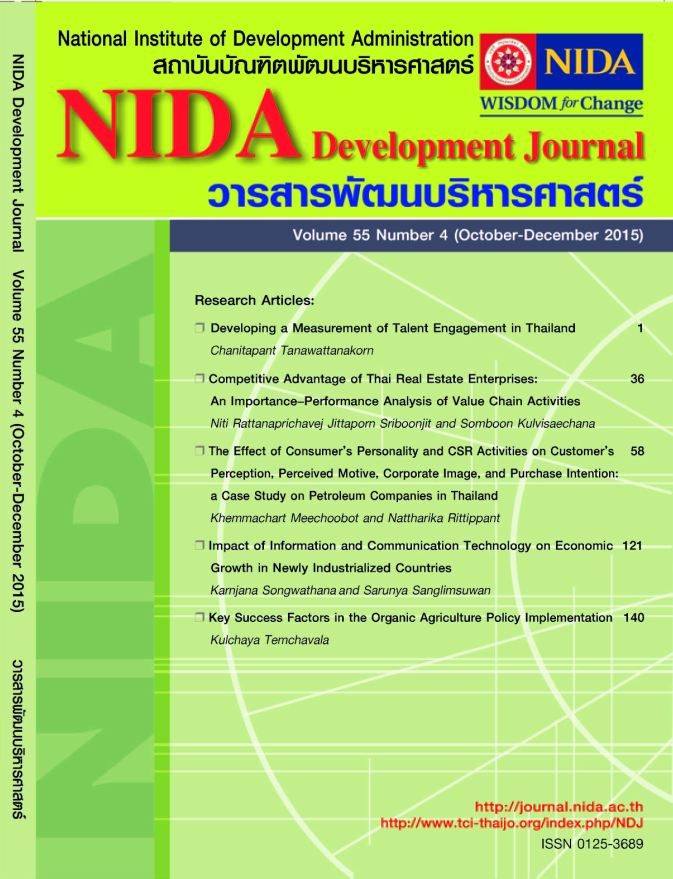The effect of consumer’s personality and CSR activities on customer’s perception, perceived motive, corporate image, and purchase intention:a case study on petroleum companies in Thailand
Keywords:
Company Motive, Consumer Personality, Consumer Perception, Corporate Image, Corporate Social ResponsibilityAbstract
Corporate Social Responsibility (CSR) is the concept of continuing commitments from business corporations to ensure ethical economic development and contribution to societal welfare. Previous research studies have shown that there are benefits from being socially responsible by engaging in or implementing CSR activities. In order to ensure an effective and successful CSR implementation, influential factors of CSR implementation should be explored. The main objective of this study is to investigate how consumer’s personality and CSR activities influent consumer’s perception, perceived motive, corporate image, and purchase intention. Our expectation is to determine how personality of consumers and each CSR activity have an effect on perceptions toward CSR activities. Thus, positive perceptions toward CSR activities affect company motives as perceived by consumers, corporate image and purchase intention of product and services. Petroleum companies (gasoline companies) are at the focus of this study due to high expectations in environmental issues from the various stakeholders of the companies. The paper-based questionnaires were distributed to 342 respondents who own a car and purchase gasoline frequently. The results were analyzed using Structural Equation Modeling (SEM) in order to prove the hypotheses. The results of this research found that the CSR activities are the key determination on creating favorable perceptions.Downloads
How to Cite
Meechoobot, K., & Rittippant, N. (2015). The effect of consumer’s personality and CSR activities on customer’s perception, perceived motive, corporate image, and purchase intention:a case study on petroleum companies in Thailand. NIDA Development Journal, 55(4), 59–121. retrieved from https://so04.tci-thaijo.org/index.php/NDJ/article/view/40938





